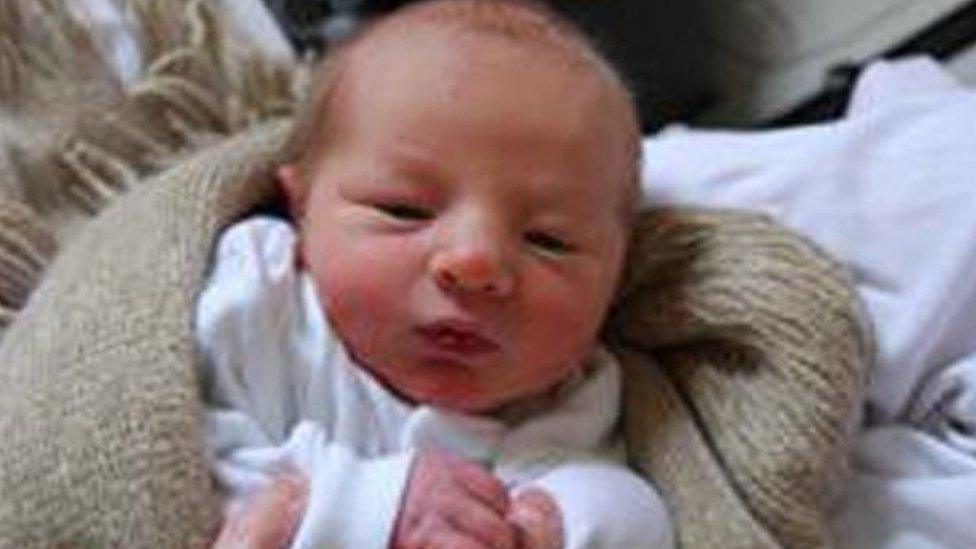How do I tell my child they have cancer?
- Published
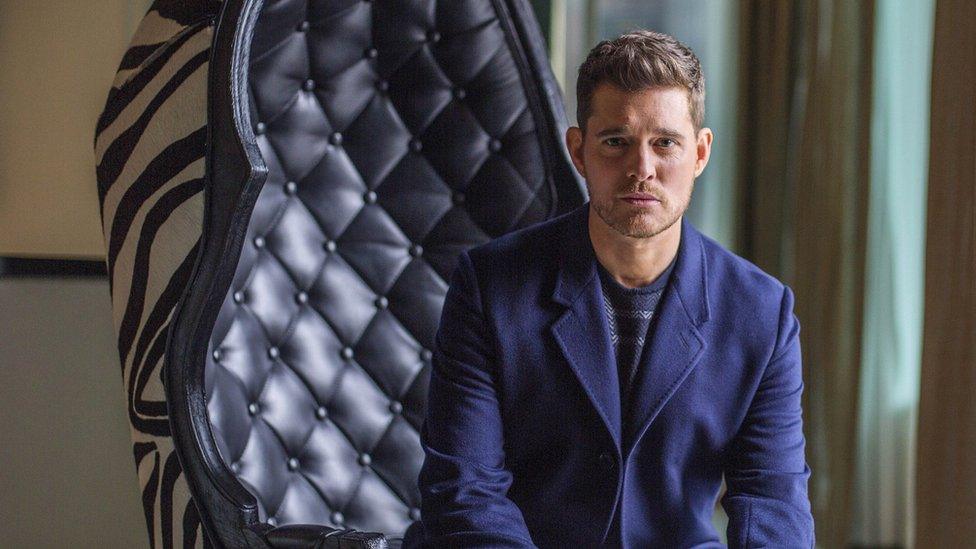
Michael Buble's son, Noah, is having treatment in the US
Singer Michael Buble and his actress wife Luisana Lopilato have revealed their three-year-old son has cancer. The couple said they were dropping all work commitments. But how do other parents facing this devastating news go about telling their child?
Each year, 1,691 children in the UK are diagnosed with cancer. In England and Wales, 82% of those diagnosed survive for five years or more.
If you Google "How do I tell my child they have cancer" you get 201 million results - a whole host of organisations, charities and people wanting to help.
But experts say it's important to keep things simple.
On those sites, you will discover the many different terms used to describe cancer ranging from "tumour" to "poorly blood".
But these different terms can confuse children, according to Helen Lythgoe, a children's lead Macmillan nurse, and she advises that it is better to stick with one term you feel comfortable with.
It is often better to use the word cancer and be clear about what it means, as children may hear the word used in a different context and worry about it.
Michael Buble "devastated" by son's diagnosis
Ms Lythgoe warns parents not to be scared to talk to their child about what is happening and, because of the emotions surrounding the diagnosis, to plan what you're going to say.
She says: "Children are very matter-of-fact about things. Once they know what is going on they will generally carry on as normal.
"It is often better to explain what's happening bit by bit, or when there is a change, this helps to build up their understanding so is not overwhelming."

The basics you should always remember
Be honest - use clear and simple language when telling very young children
Most children are afraid of pain so talk to your child in advance about any tests and treatments that may hurt
Explain that having this treatment is to help make them better. You may also explain that doctors can help make treatments less painful
Tell your child that when treatment is finished, he or she can return home (if that is true)
If you know how many more days your child will be in the hospital, share that information with them

Talking about cancer and the diagnosis can be reassuring, according to the NHS Live Well website, but the approach of parents may differ depending on the age of their child and what they may understand.
For example, Cancer.net, external says that very young children will not understand much about cancer; their primary fear is that they will be taken away from their parents and this is what they need reassurance about.
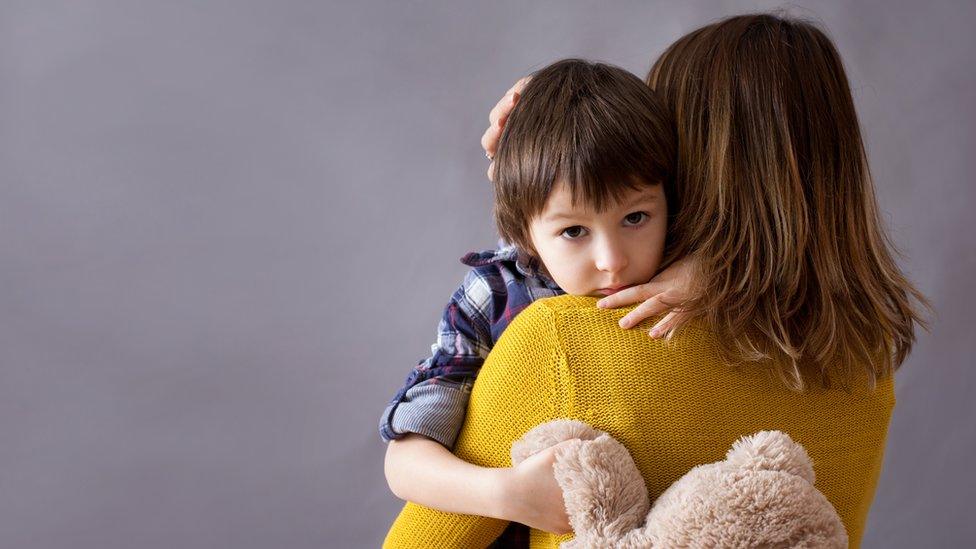
As children get older they are less likely to think their condition was caused by something they did or thought, says cancer.net.
They start understanding more that they will need to undergo other treatment.
All children need reassurance that:
nothing they or anyone else did or thought caused the cancer
cancer isn't like a cold and you can't catch it - so it's OK to sit close, hug or kiss
their parents will not abandon them at the hospital
they will not live in the hospital forever
Older children may hear about cancer from other sources including the TV, and the internet, so parents should encourage them to share what they have learned.
Teenagers may have lots of questions and be interested in learning more about their diagnosis, often thinking about the disease in terms of the effect on daily life, such as school, sports, and friends.
Side effects relating to their physical appearance can be a priority for them and some may want to play a role in making decisions about their treatment.
Whatever the age of the child, the most important way any parent can help is simply to talk.
- Published4 November 2016
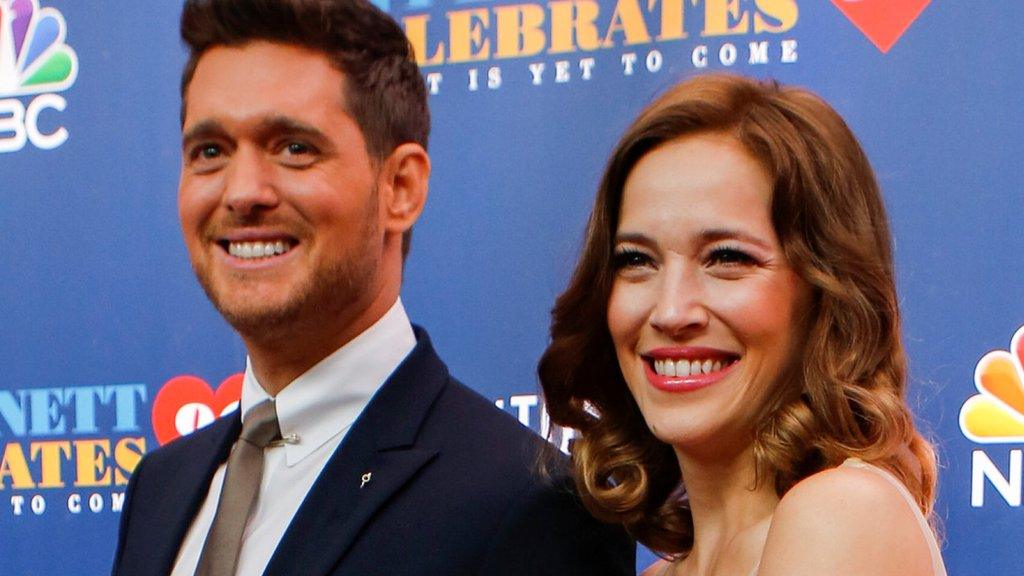
- Published1 November 2016
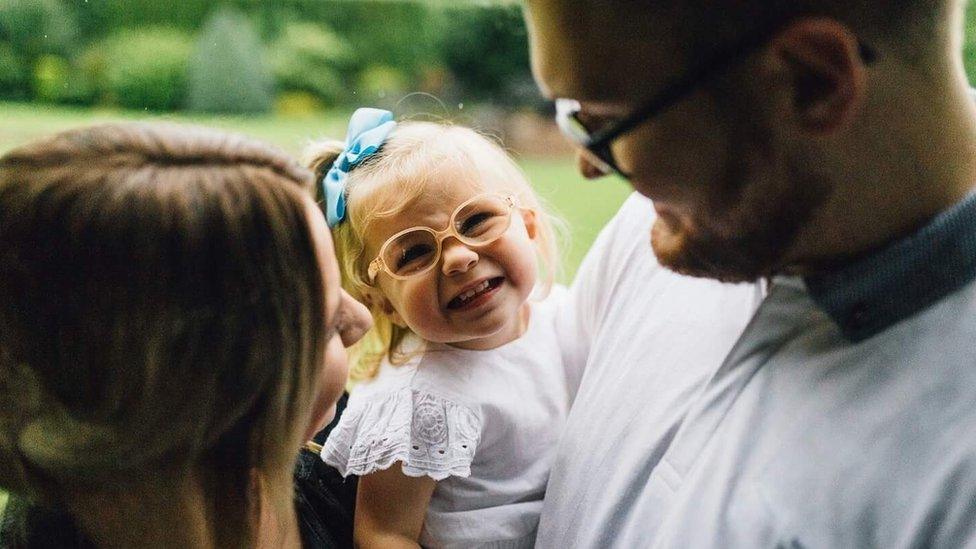
- Published5 August 2016
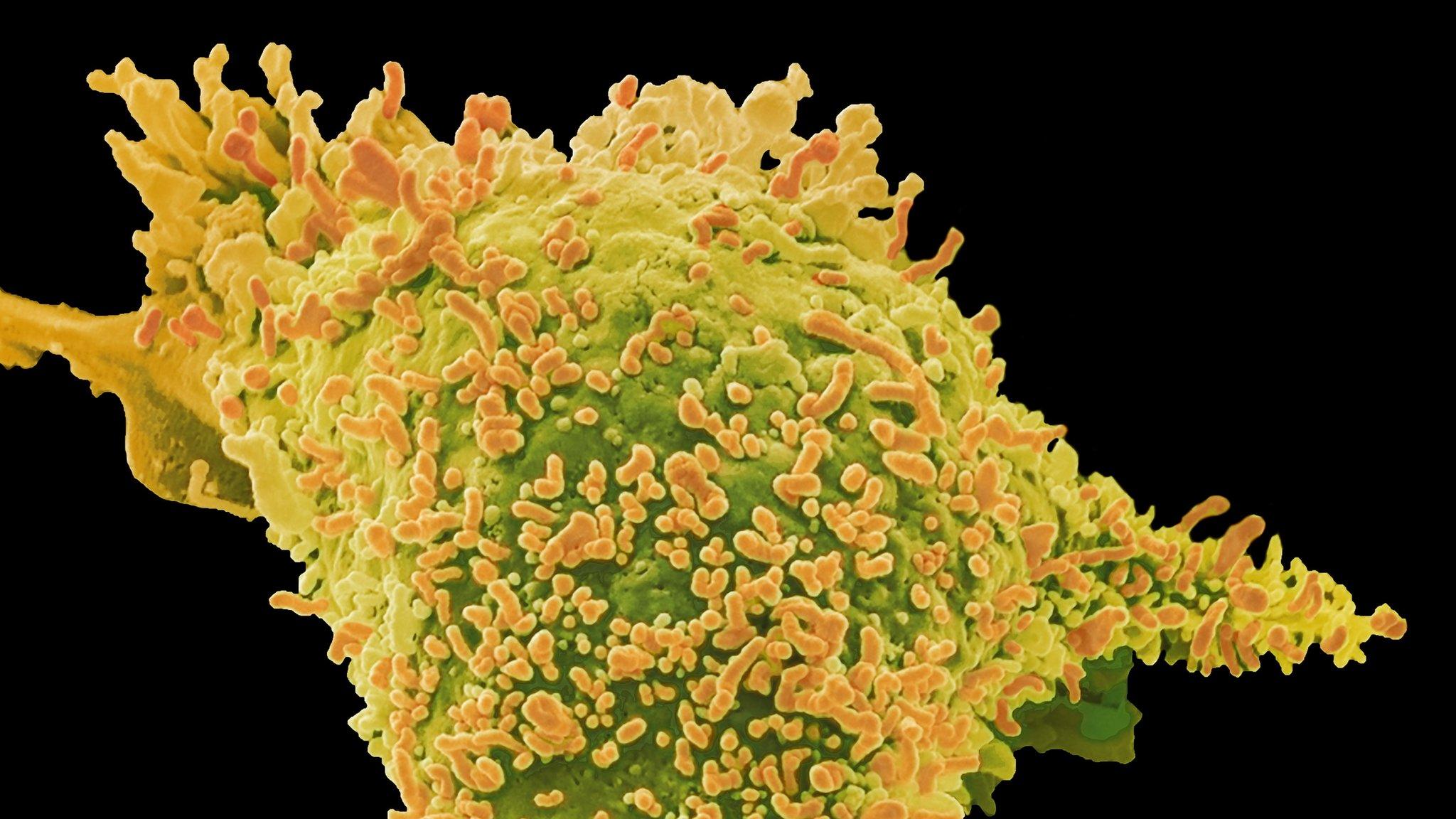
- Published10 October 2016
